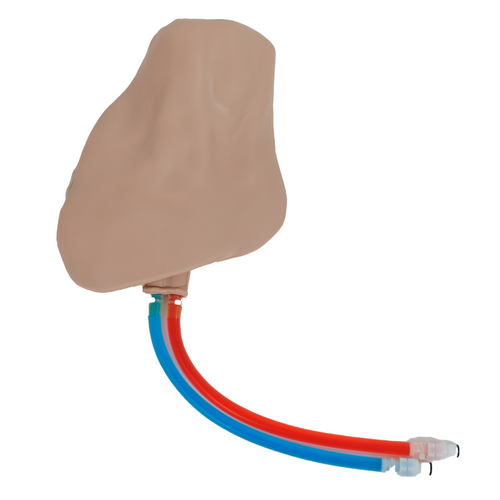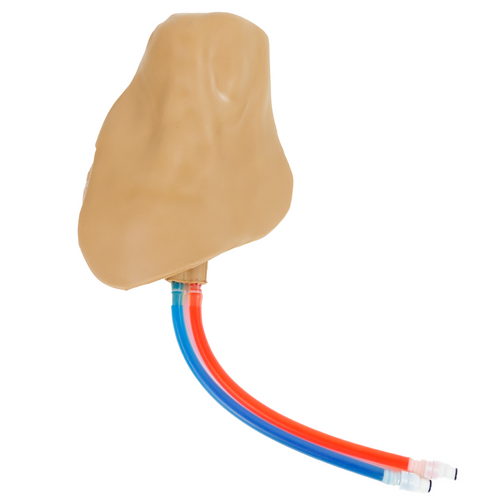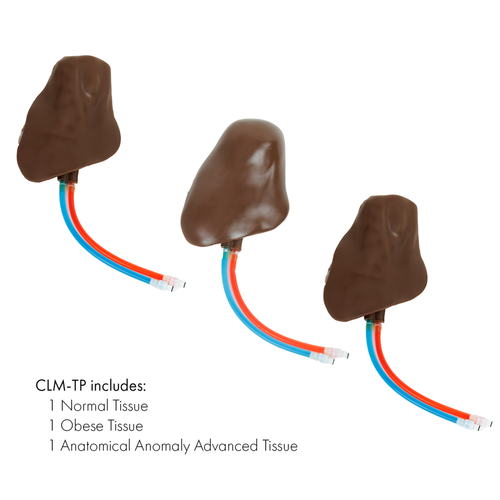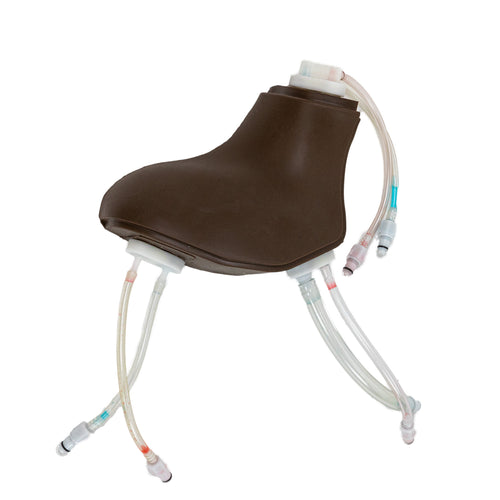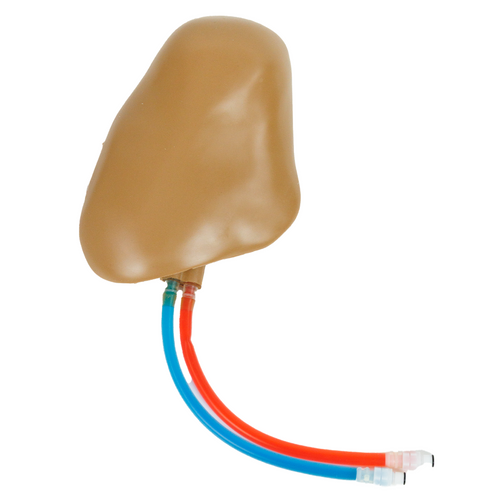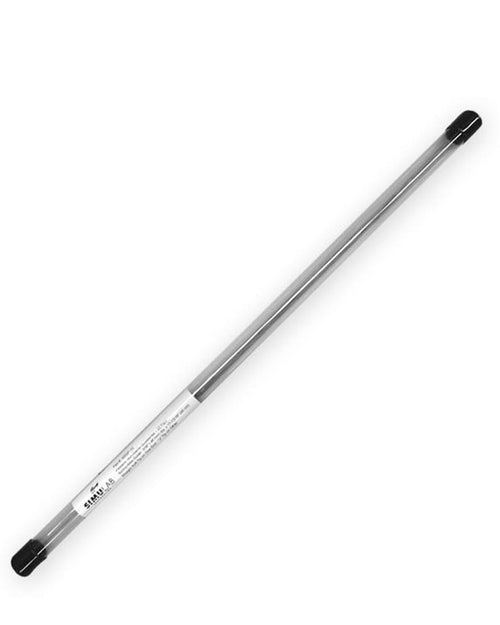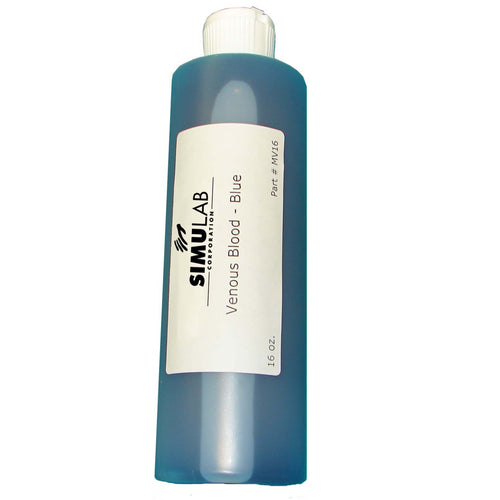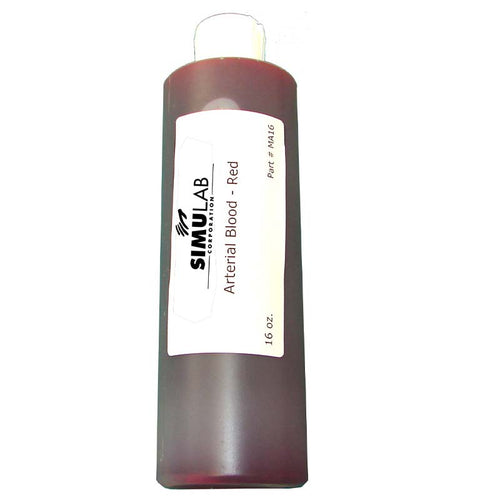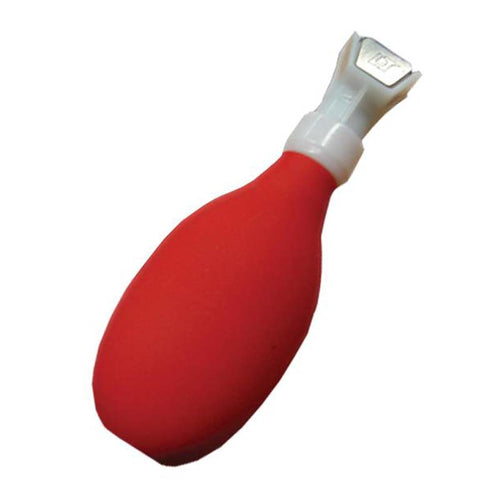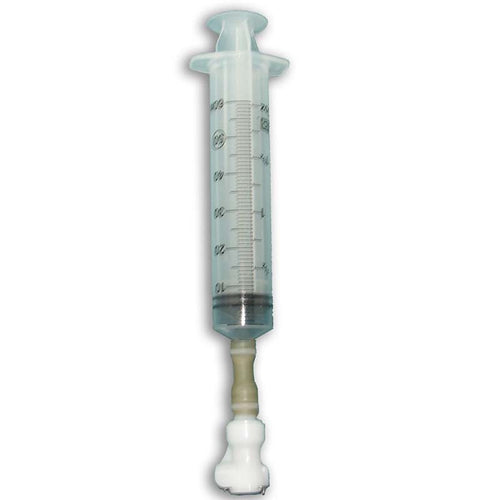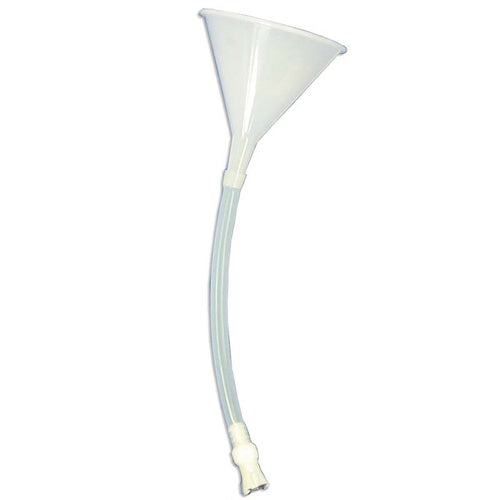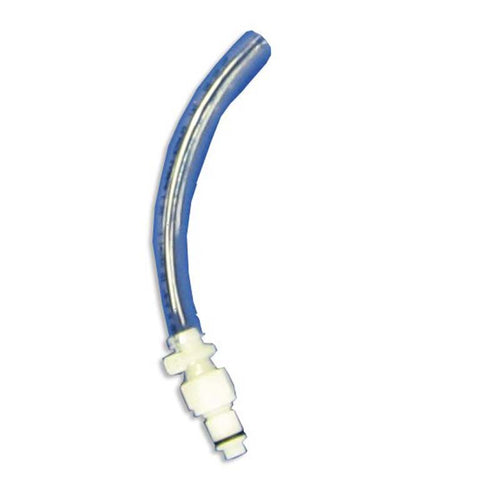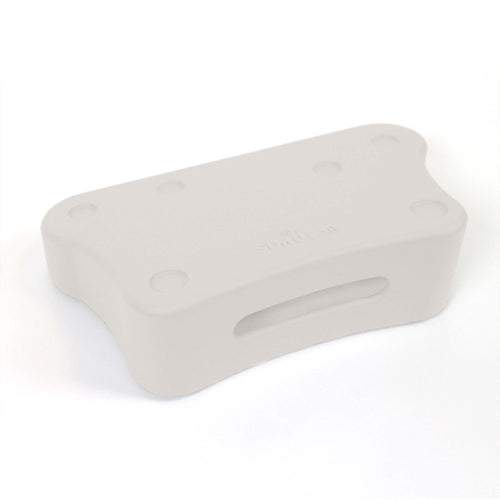Deluxe CentraLineMan® Training Package with Articulating Head
Anatomically correct, ultrasound-compatible tissue, with all relevant landmarks and anatomy.
Enhanced procedural difficulty—Develop user's skills by introducing anatomical variations.
Enhanced procedural realism—Place simulator in 15° Trendelenburg to practice central line insertion on the simulator in standard position.
Market leading durability—self-sealing tissues and veins offer the greatest value, in the frequency of needle sticks and full catheterizations per access site, of any trainer on the market.
Exceptional ultrasound imaging through repeated use—needle sticks and full catheterizations do not degrade the image acuity.
Two colors of simulated blood differentiate the arterial and venous vessels—provides immediate feedback of unsuccessful cannulation.
Arterial pulse is present and the vein realistically compresses under palpation.
Easily adjustable venous pressure regulator allows for vein compression or low-pressure simulation scenarios.
Replaceable tissues come pre-filled with blue venous and red arterial fluid. Tissues can remain filled when not in use and are easy to refill with provided fluid when necessary
Portability—practice simulation in settings of actual patient care.
Deluxe CentraLineMan® Training Package with Articulating Head
Practice full central venous catheterization training—ultrasound guided or blind/landmark insertion approaches at the subclavian, supraclavicular, and internal jugular access sites on patients with anatomical variations.
Practice placing the patient in the appropriate position per access site standards
Gain experience in identifying and selecting appropriate access site based on patient anatomical variations
Practice use of ultrasound for:
- Developing psychomotor skills required for obtaining visualization during cannulation
- Detecting anatomical variations
- Distinguishing vessels
- Visualizing arterial pulse and venous compression
- Identifying the anatomical location of the target vessel
- Visualizing needle cannulation of the target vessel in transverse view
- Visualize threading of guidewire in longitudinal axis view
- Visualizing catheter placement
- Reducing the rate of mechanical complications due to anatomical variances such as pneumothorax or arterial puncture.
- Improving first cannulation success and decreasing needle passes
- Practice palpating external landmarks to identify vessel location
- Practice identifying unsuccessful vessel access by fluid feedback representing arterial puncture
Demonstrate advanced knowledge and skills needed for insertion on patients with anatomical variations.







